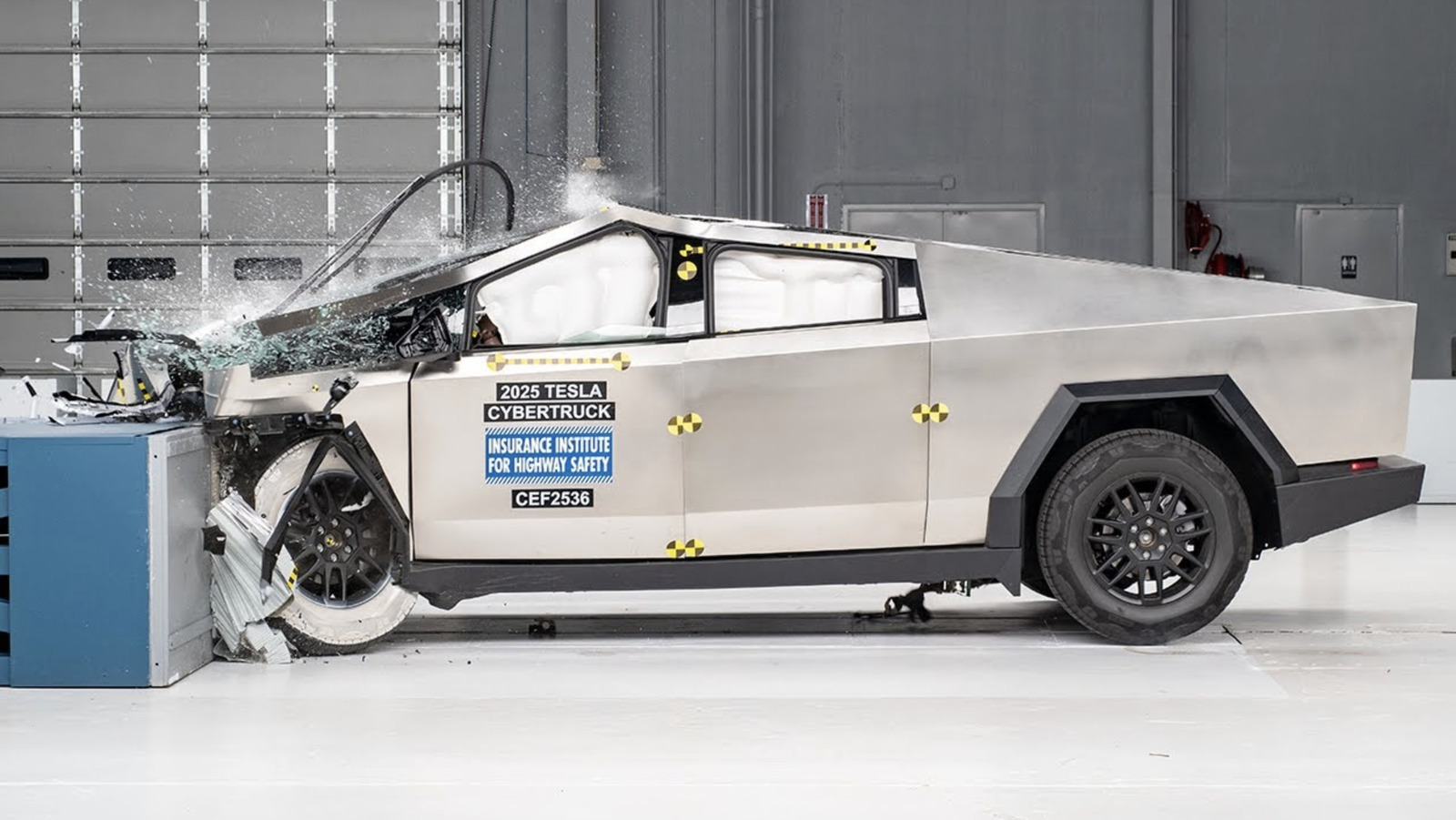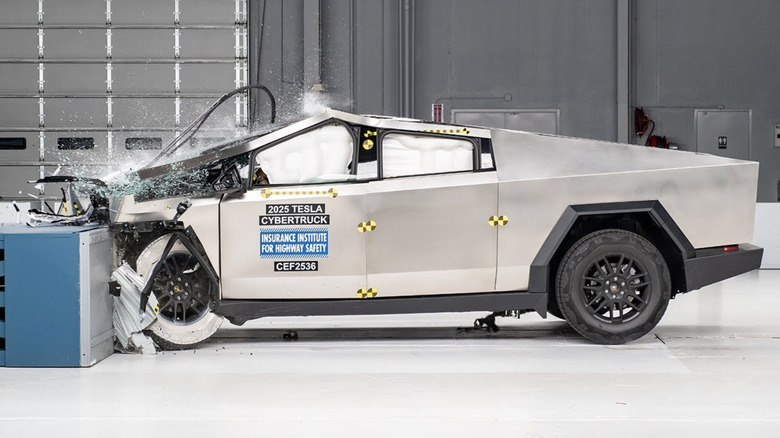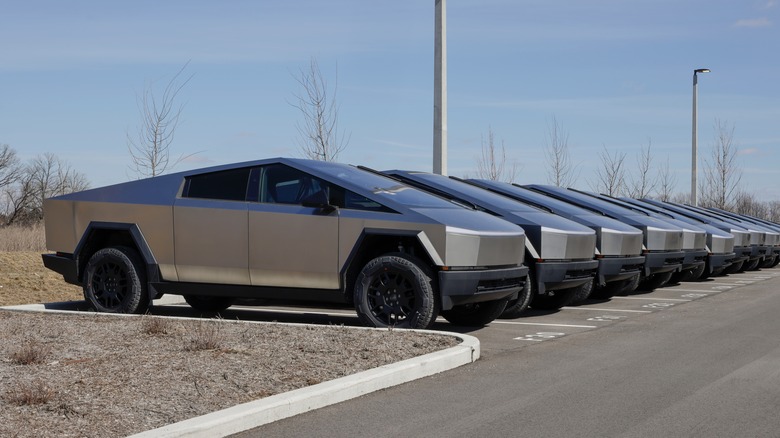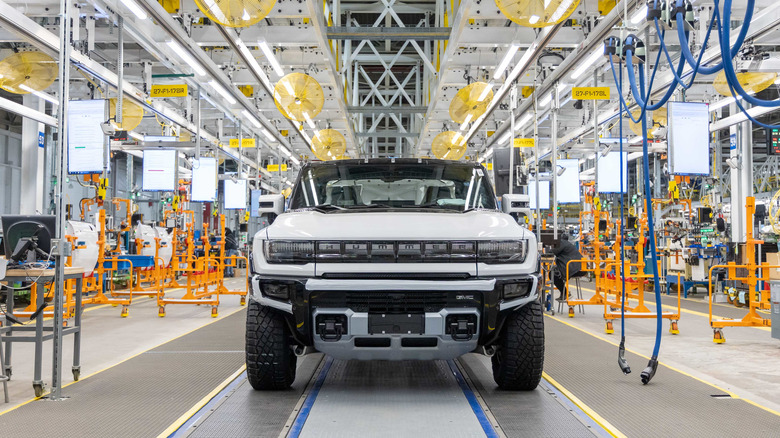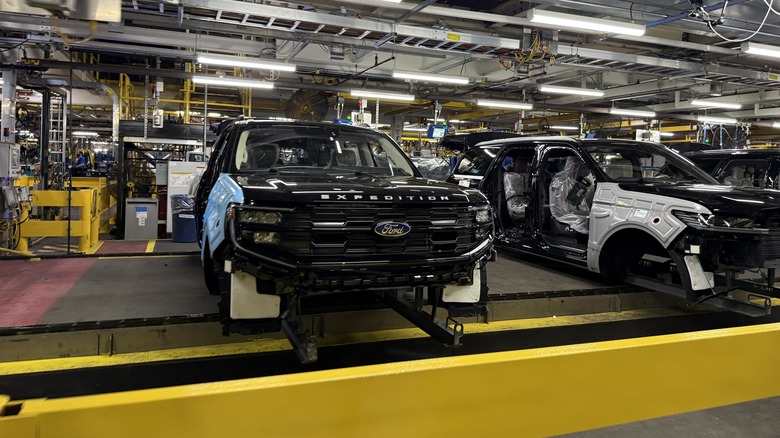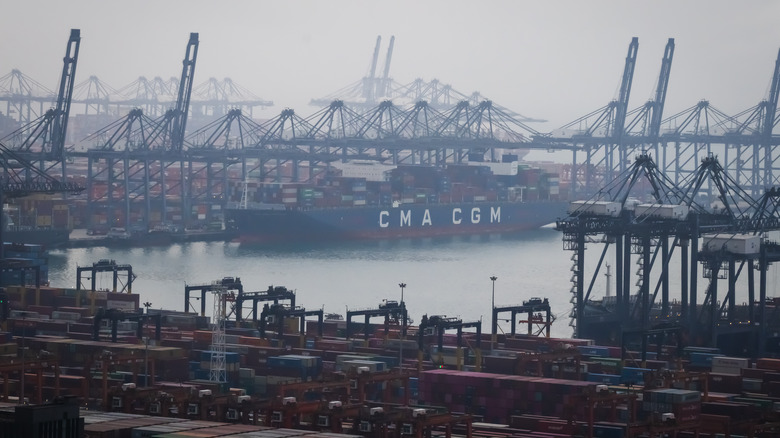Good morning! It’s Tuesday, October 14, 2025, and this is The Morning Shift, your daily roundup of the top automotive headlines from around the world, in one place. This is where you’ll find the most important stories that are shaping the way Americans drive and get around.
In this morning’s edition, Tesla Cybertruck sales have fallen off a cliff, GM has incurred a massive $1.6 billion charge for its EV business, Ford is cutting production for five trucks following that aluminum plant fire, and China is hitting U.S.-owned ships with port fees as retaliation for tariffs.
1st Gear: Cybertruck sales fall off a cliff in Q3
Who could have seen this coming? Tesla Cybertruck sales have completely tanked — falling by more than half in just a year. Tesla apparently sold about 5,400 Cybertrucks in the third quarter. That’s still far too many, but it does represent a 62.6% drop from the same time last year, according to data from Cox Automotive.
This fall, rather stunningly, comes despite the fact that Tesla — and the broader EV market as a whole — had a record-setting Q3 as buyers snatched up electric cars before the federal EV tax credit expired. In any case, it’s just further proof that CEO Elon Musk’s speculation that Tesla could end up building a quarter million Cybertrucks a year was nothing but junk marketing. From Business Insider:
Nearly two years after its launch, the stainless steel-clad pickup is nowhere near that lofty target, with Tesla having sold around 16,000 Cybertrucks so far in 2025.
The futuristic electric pickup is also lagging behind Ford’s F-150 Lightning, its main rival. Ford sold 10,000 Lightnings in the third quarter, according to Cox data.
Tesla has struggled to find a market for the Cybertruck. Early versions of the electric truck went for around $100,000 when it launched in November 2023, well above the $39,990 starting price Musk advertised at its 2019 unveiling.
I’ll tell you what, folks, this isn’t shocking. There are a billion reasons why the Cybertruck hasn’t been a good seller, but to save everyone time, I’ll highlight the main one. The biggest reason the Cybertruck doesn’t sell is because of Musk himself. Elon is the Cybertruck and the Cybertruck is Elon. The two are linked at the hip, and no other vehicle in Tesla’s lineup more personifies Elon Musk than the Cybertruck. When people see a Model Y or Model 3 on the road, for the most part, they don’t think about Musk. However, when they see a Cybertruck, it’s the first thing on their mind. The second thing is, “Oh God, get that away from me.”
Oh, it also doesn’t help that it’s unsafe, unreliable, expensive, impractical, and ugly.
2nd Gear: GM racks up $1.6 billion in canceled EV production charges
General Motors incurred a massive $1.6 billion electric vehicle investment bill in the third quarter, according to government filings, and it comes as the automaker plans to increase production of gas-powered vehicles at several of its assembly plants across the U.S. That bill primarily comes from unused equipment that was meant for EV production, totaling $1.2 billion. The remaining $400 million is what it owes suppliers for contract cancellation fees.
To cope with the smaller-than-expected EV market, GM has made quite a few production changes. The company has cut shifts and laid off hundreds of workers at its Factory Zero EV plant, and many will remain on furlough through the end of the year at the very least. From the Detroit Free Press:
“General Motors Company made significant investments and contractual commitments in the development of electric vehicles to help the company’s vehicle fleet comply with emissions and fuel economy regulations that were scheduled to become increasingly stringent,” read the filing. “Following recent U.S. government policy changes, including the termination of certain consumer tax incentives for EV purchases and the reduction in the stringency of emissions regulations, we expect the adoption rate of EVs to slow,” the filing continued. “Our strategic realignment of EV capacity does not impact today’s retail portfolio of Chevrolet, GMC and Cadillac EVs currently in production, and we expect these models to remain available to consumers.”
[…]
GM changed the status of 900 workers on temporary layoff to “indefinite” layoff last month at the Fairfax Assembly plant in Kansas City, Kansas, while it retools the plant for production of the gas-powered Equinox.
GM has said in the past that the reassessment of its EV capacity and manufacturing footprint is ongoing. This includes investments in battery component manufacturing.
There is some good news for folks who wish to see an electric GM future.
Just because the company is claiming the EV production capacity as a loss, it doesn’t mean that its equipment isn’t being used, nor that it will never be used again, according to Sam Abuelsamid, vice president at Telemetry. It’s just not in use at full capacity.
GM has “invested many billions of dollars in this equipment, and multiple factories in Detroit, Spring Hill (Tennessee), and Ramos (Mexico) as well as the battery plants and propulsion plants — and they’re being underutilized,” Abuelsamid said. “All of these things added together, the value of the assets is less than what they had listed on their balance sheet.”
In the second quarter of 2025, GM reported a net income of $1.89 billion — a 35% drop compared to the same time a year ago. It can thank President Donald Trump and his tariff crusade for taking a $1.1 billion piece of that pie away. The automaker is expected to release its Q3 earnings on October 21.
3rd Gear: Ford cuts full-size SUV production
Ford is temporarily cutting production of at least five incredibly important vehicles following a massive fire at an aluminum supplier plant in September. The Blue Oval will not be producing the Expedition and Lincoln Navigator at its Kentucky Truck Plant because of issues with aluminum supply, according to a United Auto Workers official. The pause is set to last a week.
Ford says it’s working closely with Novelis, the aluminum supplier whose upstate New York plant burned last month, while also “exploring all possible alternatives to minimize any potential disruptions.” Right now, it’s expected that Novelis will be offline until early next year. When you consider the fact that the plant supplies about 40% of the aluminium sheet used by the U.S. auto industry, it’s a real disaster. From The Wall Street Journal:
Ford is the plant’s biggest customer. Its F-150 pickup, the top-selling truck in the U.S. and the automaker’s main profit driver, is one of the industry’s biggest users of aluminum.
After the fire, analysts warned that Ford was at risk of losing up to $1 billion of operating profit if production of F-series pickups was lost. So far, Ford is able to keep making those trucks—including its highly profitable F-series Super Duty pickups—at the plant in Kentucky.
[…]
[A] UAW official told members in a Facebook post Monday that the Kentucky plant producing the Super Duty pickups “may run short today, tonight, and possibly over the next few shifts.”
Ford is already facing $2 billion in costs related to President Trump’s tariff policies and $5 billion in losses by its electric-vehicle unit this year. While the Novelis plant in upstate New York isn’t expected to resume production of automotive-grade aluminum sheet until March or April, the company is looking to import aluminum from other countries.
To preserve its precarious aluminum supply, Ford also stopped work at its other assembly plant in Louisville last week. Production of the Ford Escape and Lincoln Corsair resumed this week with only one of two shifts operating. The automaker also idled its plant in Dearborn that produced the F-150 Lightning because of the same issue.
I do not envy the position Ford is in right now.
4th Gear: China hits U.S.-owned ships with port fees
China is not pleased with President Donald Trump’s tariff tactics, so it’s turning up the heat on U.S.-based ships docked at its ports. The country has started collecting special port fees from U.S.-owned, operated, built, or flagged vessels, but it says that Chinese-built ships would be exempt from the levies. From Reuters:
The details published by CCTV clarify the specific provisions on exemptions, including for ships built by China, empty ships entering Chinese shipyards for repair, and other ships that are deemed exempted from payment.
China’s transport ministry announced last week that it would slap the new port fees as a countermeasure to U.S. port fees on China-linked ships starting the same day.
Following the announcement, U.S. President Donald Trump said he was raising tariffs on Chinese imports to 100% from November 1 and imposing export controls on critical software in reprisal for China expanding its export limits on rare earth minerals.
The special port fees will be collected at the first port of entry on a single voyage or for the first five voyages within the year, CCTV said, adding that the annual billing cycle will begin on April 17.
Failure to pay the fees will lead to stalled import and export procedures for the ship, the state media said.
It seems we’re reaching the “find out” stage of Trump’s game of chicken when it comes to tariffs.
Neutral: Goodbye, Z4
While I was writing TMS today, the fella who won my 2007 BMW Z4 on Cars & Bids last week came and picked it up. It’s a deeply bittersweet moment for me. On one hand, I loved this car. It was my first real performance car. It’s how I learned to drive stick. It’s — I think — part of the reason I was hired here, and it helped keep me entertained during the dog days of the Covid lockdown. On the other hand, we’re living in a world that is getting more and more expensive, and some extra money in my pocket never hurts. Plus, frankly, I just didn’t drive it enough. In my over five years of ownership, I put just 9,700 miles on the car, and the vast majority of those came before March of 2022. That really ate me up inside. This is a wonderful car to drive, and it spent most of its time under a cover in my parents’ driveway. The new owner tells me he’s going to be dailying the car, which is wonderful to hear.
Goodbye, my little Z4, and thank you.
Reverse: That’s mighty fast, Check
Can you even imagine what it was like to fly faster than the speed of sound — something the vast majority of people haven’t even done today — back in 1947? That’s just lunacy. If you want to learn more about Yeager and this incredible feat, check out History.com.
On the radio: Paul Revere & The Raiders – Good Thing
I can’t say why exactly, but this was one of my favorite songs to listen to when I was driving top down in the Z4. Honestly, the entire “Once Upon a Time… In Hollywood” soundtrack is an absolute banger in a convertible. I highly recommend it.


